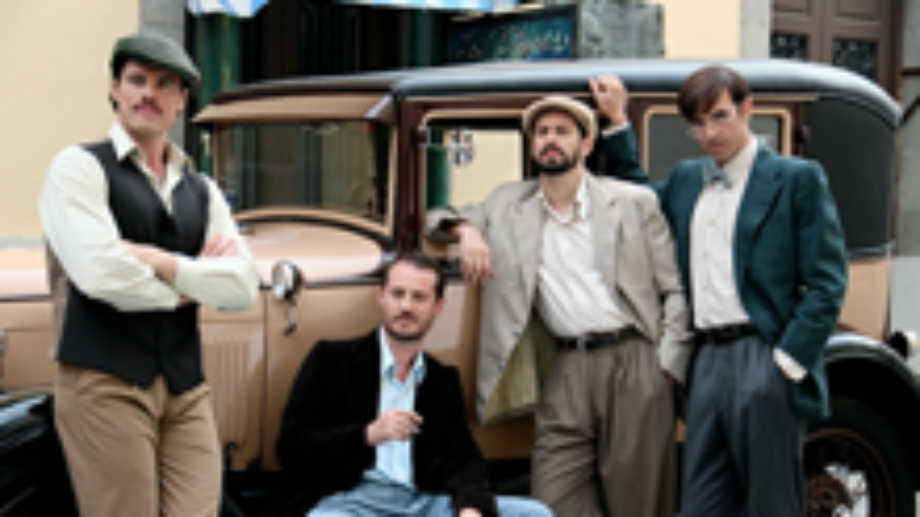
Despite the imploding Spanish economy, Spanish commercial moviemaking seems to continue, unabated. But it’s a plodding kind of continuity, as uninspired as it is relentless. A prime example is The Clan, the feature debut by director and co-writer Jaime Falero, who’s previously made television nonfiction and shorts. Set in the early era of Franco’s fascist regime (specifically 1944) but hardly alluding to it, the movie begins as a caper, transmogrifies into a character drama, and shifts yet again into a thriller faintly inspired by The Most Dangerous Game.

Rather than an overt fascism, the world of The Clan is governed by an overweening machismo shared by good guys and bad guys alike. Ricardo (Francisco Vera) narrates as the guiding force behind a foursome of guys who take on clients who need problems “fixed,” which usually involves a combination of con artistry and pure brawn. Oddly, the movie takes little pleasure in and devotes even less time to the group’s exploits; the elixir of the caper genre, even the guys-on-a-mission genre, is barely sipped by Falero, despite the fact that he’s clearly in the game of making entertainments. (The Clan isn’t likely to be hitting many, if any, major festivals after its Cannes market premiere.)

Instead, the movie tilts in favor of Ricardo’s personal problems, which include being under the gun to ruthless creditors and succumbing to the mysterious yet highly suspicious entreaties of one Don Balbiani (Carlos Lasarte), the kind of demonically salty old gent that John Huston once made his own. This leads to a measure of narrative tension, but by then, the fun has completely drained out of The Clan, and not even third-act revelations of a strange secret society can rescue the movie.



